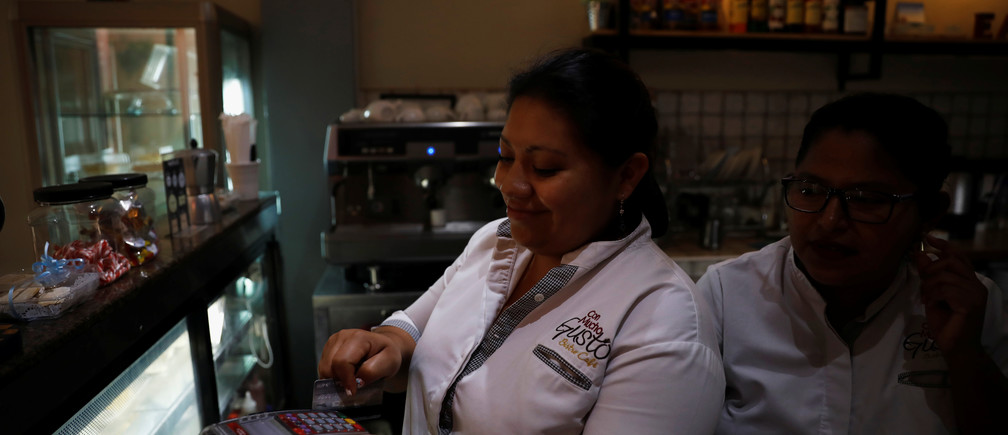This credit card has a carbon-emission spending limit

The DO card tracks the CO2 emissions linked to purchases to calculate the carbon impact of every transaction. Image: REUTERS/Jose Cabezas

Get involved with our crowdsourced digital platform to deliver impact at scale
Stay up to date:
Climate Crisis
From bananas and sausages to flights and fuel, we all like to keep a tally of what we spend. But whether we monitor the price in dollars, rupees or yuan, it’s unlikely we are also measuring that cost in tons of carbon produced.
Everything we put in our shopping basket comes at an environmental cost. And while many of us are aware that we need to reduce our carbon footprint, advice on doing so can seem nebulous and keeping a tab is difficult.
Tapping into that problem, Swedish fintech company Doconomy has launched a new credit card that monitors the carbon footprint of its customers - and cuts off their spending when they hit their carbon max.
The DO card tracks the CO2 emissions linked to purchases to calculate the carbon impact of every transaction. The aim is to encourage people to actively reduce their carbon footprint and demonstrate the impact that small changes can have on the environment.
The card uses the Aland Index as the basis on which it calculates the carbon footprint of each product purchased. Users can set a maximum value for their carbon spend and learn how to compensate for their carbon footprint by contributing towards schemes to reduce or remove greenhouse gas emissions.
A savings product also offered by the company offers an interest rate that includes investment in climate-friendly projects.
The card itself is made from bio-sourced materials, and printed with air ink - ink manufactured from recycled carbon in air pollution.
Doing good, one scoop at a time
The concept of offsetting carbon at the point of transaction is one that is slowly being picked up by companies. A number of airlines including Qantas and Lufthansa offer passengers the chance to pay extra to cover their carbon emissions, with limited uptake.
Last year, ice cream manufacturer Ben & Jerry’s rolled out a system in some shops to allow customers to offset the carbon cost of their cone. Customers could see the amount of carbon generated from their purchases and make voluntary contributions towards carbon-cutting projects elsewhere.
The company used a carbon calculator to work out how much emissions were produced by the ingredients, manufacturing, transport and retail of each tub. The answer was 2lbs (0.9 kg) of carbon - about the equivalent of a car driving 2 miles (3.2 km).
Don't miss any update on this topic
Create a free account and access your personalized content collection with our latest publications and analyses.
License and Republishing
World Economic Forum articles may be republished in accordance with the Creative Commons Attribution-NonCommercial-NoDerivatives 4.0 International Public License, and in accordance with our Terms of Use.
The views expressed in this article are those of the author alone and not the World Economic Forum.
The Agenda Weekly
A weekly update of the most important issues driving the global agenda
You can unsubscribe at any time using the link in our emails. For more details, review our privacy policy.
More on Climate CrisisSee all
Mette Asmussen and Takahiro Furusaki
April 18, 2024
Laia Barbarà and Ameya Hadap
April 17, 2024
John Letzing
April 17, 2024
William Austin
April 17, 2024
Rebecca Geldard
April 17, 2024








